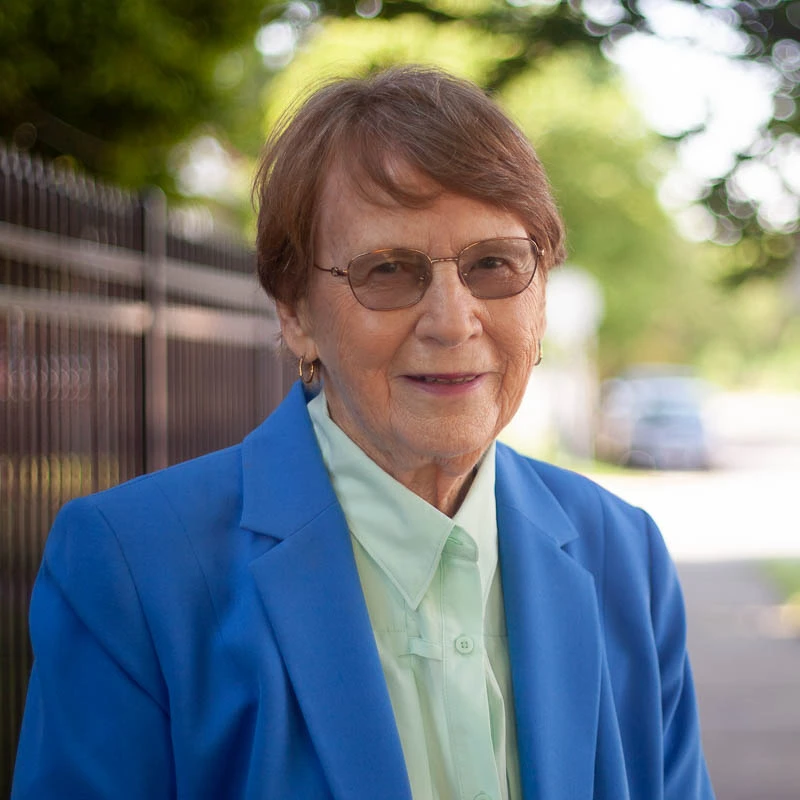
What caused Frankenberg to get involved? “In walking through neighborhoods with Sr. Barbara and Sr. Judy, I saw poverty. I saw families unhoused. I thought WIN was the best game in town. No one else was taking this grassroots approach of listening to people and then training them to speak for themselves at city hall and in Washington…WIN gives people hope in very practical ways. If you come together in a neighborhood group, you realize other people have the same issues. You don’t have to sweat it out alone; you can learn how to change your life.”
It was during these grassroots discussions that the issue of affordable housing came to the forefront. “Homeownership is essential in creating financial equity. It means family stability, improved school performance, and reduced conflict and stress,” noted Frankenberg.
WIN was very involved in working for the Community Reinvestment Act. “Becoming partners with financial institutions was a game changer. Now we have discussions with the banks to develop products for low-to-moderate-income families that help with down payment assistance and affordable mortgage rates for home repairs,” explained Frankenberg.
What is she most excited about this year? Without hesitation, she refers to WIN’s breaking ground on its near-net-zero village. “It’s a great initiative that brought together engineers and solar experts to develop a plan that will bring green energy to a low-income, majority community of color. That means new, safe, healthy housing and lower utility bills,” said Frankenberg.
What is WIN’s biggest challenge? “WIN is like a hungry giant, doing a lot with limited resources. We accomplish great things, but need financial support. I contribute as I can. WIN is in my estate plan, and I think I would like to have more people consider that,” said Frankenberg.
